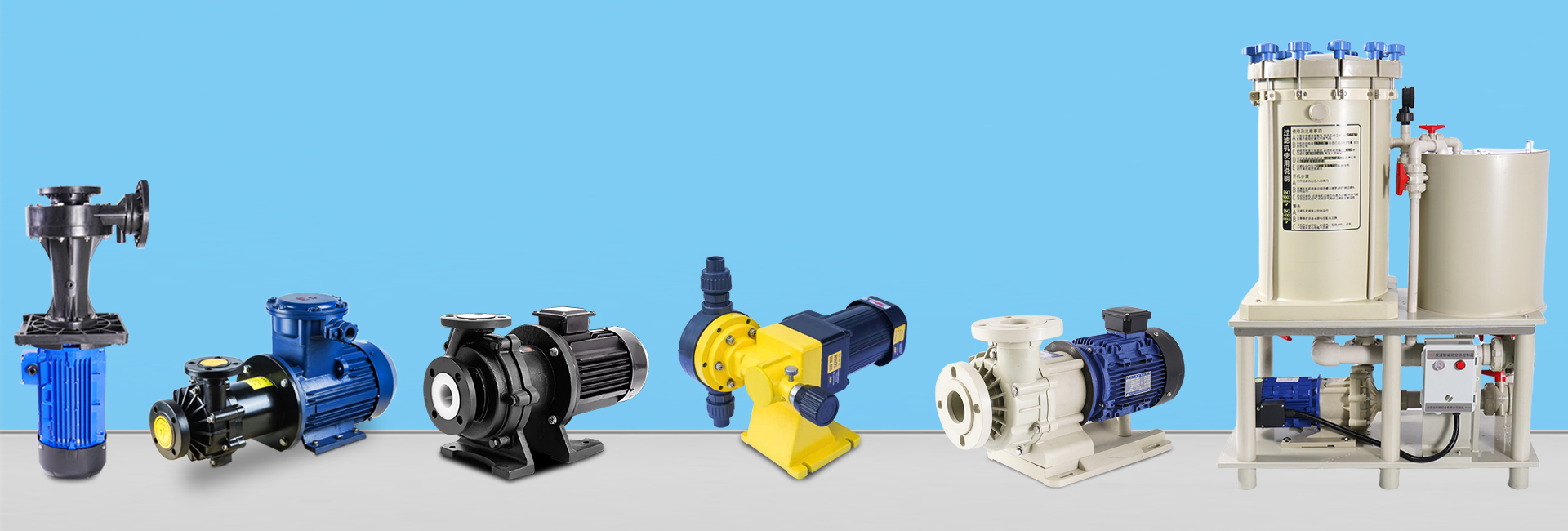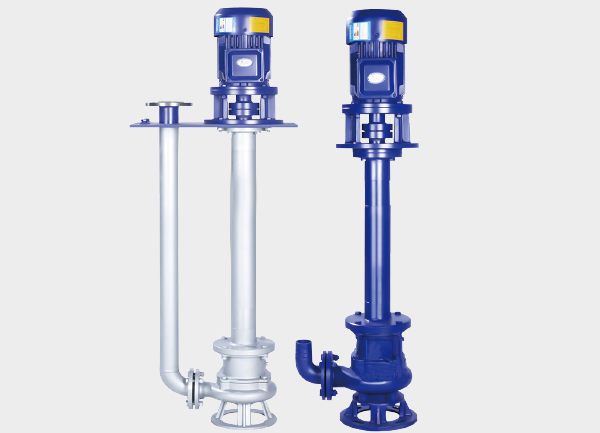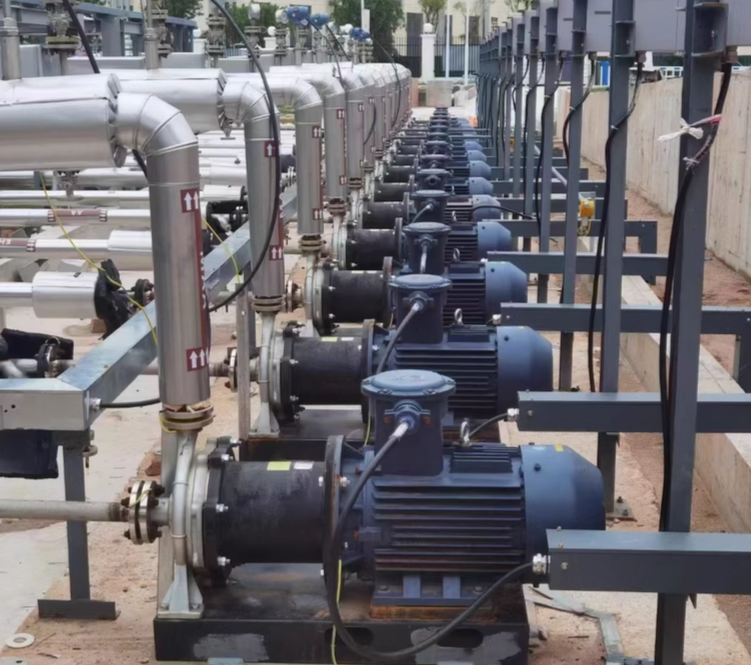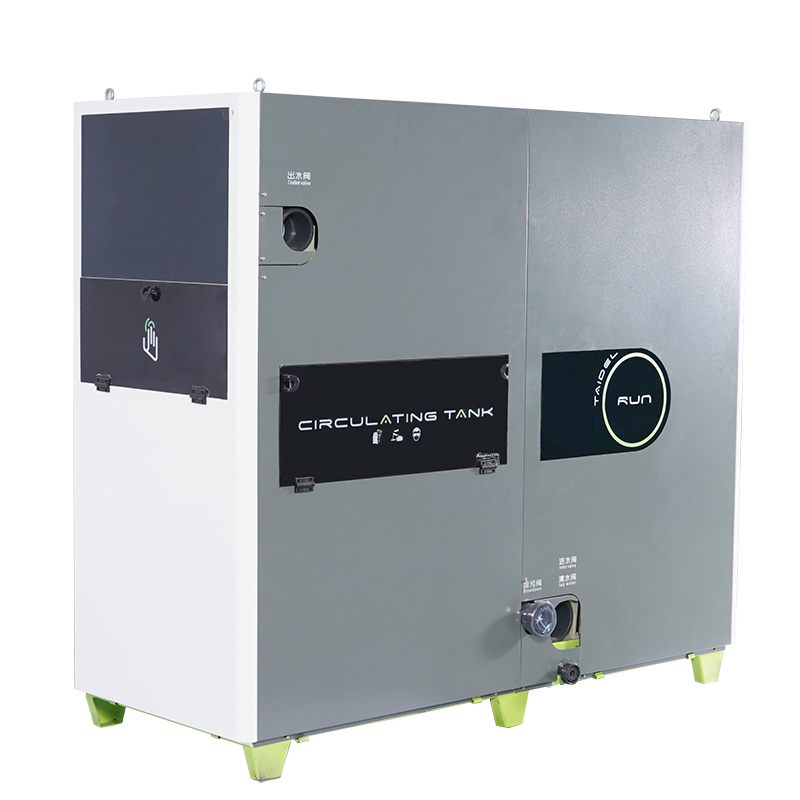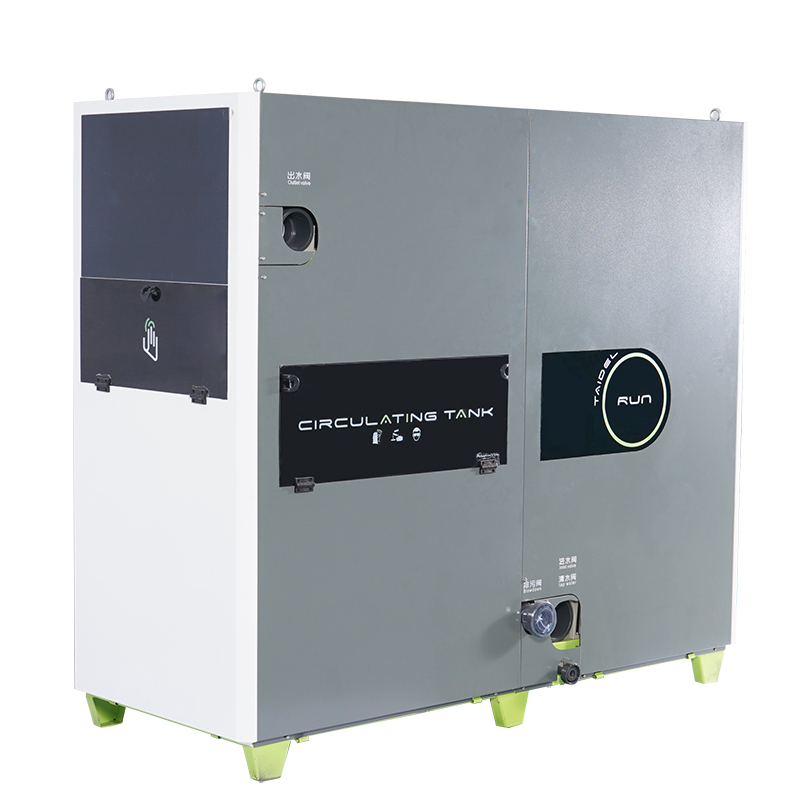Vertical pumps are widely used in chemical, industrial, and water treatment applications due to their compact design and efficient performance. However, improper installation, incorrect operation, or poor maintenance can lead to various issues. This article summarizes the most common problems with vertical pumps, their causes, and effective troubleshooting methods.
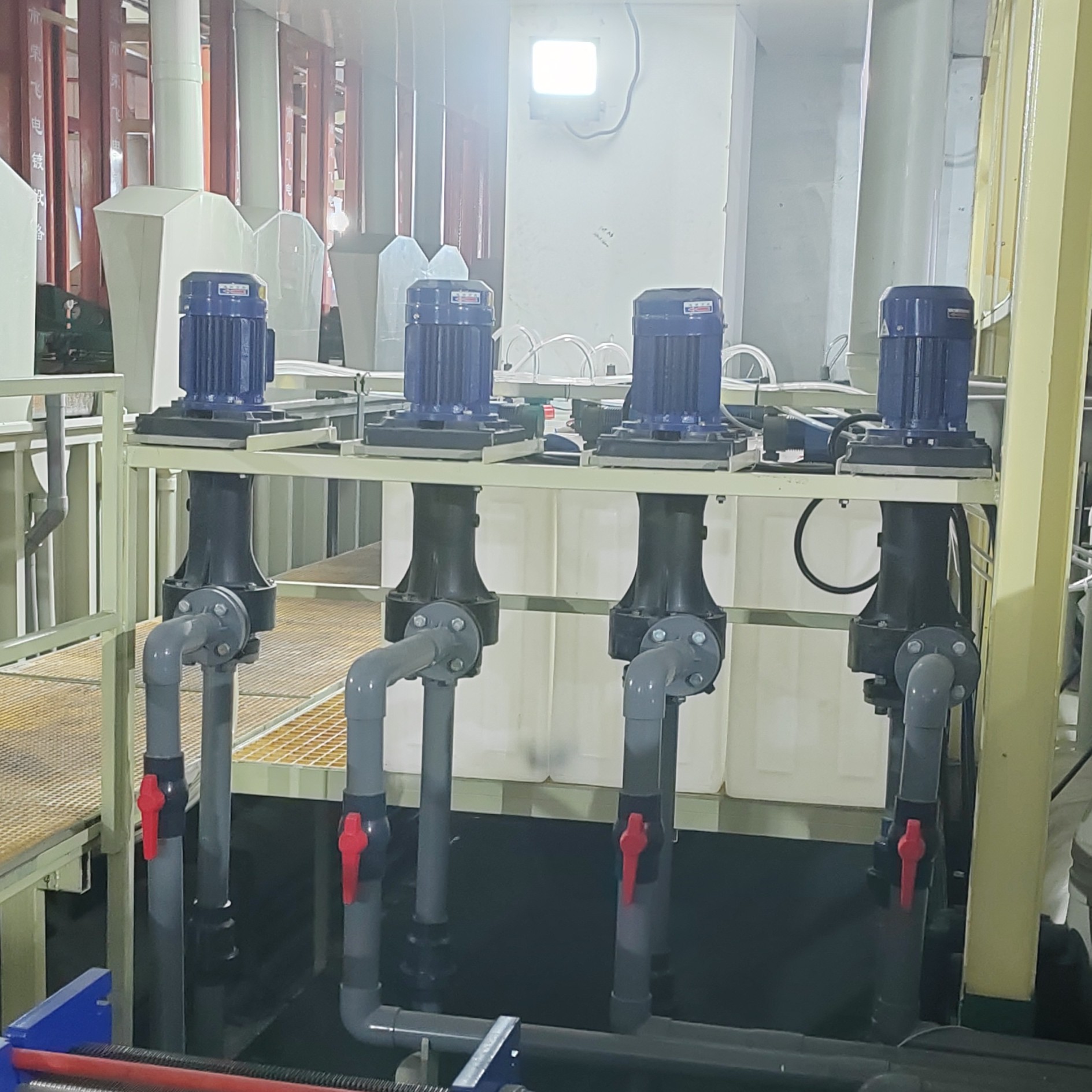
1. Startup and Operation Problems
1.1 Pump Fails to Discharge Water
Possible Causes:
Air trapped in the suction line
Pump casing not filled with liquid
Inlet or outlet valve closed
Impeller rotating in the wrong direction
Solutions:
Vent the air and refill the pump with liquid
Open the valves completely
Check motor wiring and ensure correct rotation direction
1.2 Insufficient Flow Rate
Possible Causes:
Worn impeller or internal components
Blocked suction or discharge pipeline
Excessive system head or air leakage in the suction line
Solutions:
Clean the suction line
Replace the impeller if worn
Check for air leaks and seal the connections
1.3 Low Pump Head
Possible Causes:
Improper impeller installation height
Motor speed too low
High system resistance
Solutions:
Adjust the impeller position
Verify motor speed
Optimize the pipeline system design
1.4 Excessive Vibration or Noise
Possible Causes:
Bearing wear or shaft misalignment
Loose foundation bolts
Cavitation due to low suction pressure
Solutions:
Align the pump and motor shafts properly
Tighten all mounting bolts
Improve suction conditions to prevent cavitation
1.5 Motor Overload or Tripping
Possible Causes:
Flow exceeds rated capacity
Bearing seizure or friction in rotating parts
Solutions:
Control the valve to maintain rated flow
Inspect and clean rotating parts
2. Installation and Alignment Issues
2.1 Bearing Overheating
Possible Causes:
Poor alignment between motor and pump
Insufficient lubrication
Bearing wear or damage
Solutions:
Realign the pump and motor
Refill or replace the lubricant
Replace damaged bearings
2.2 Difficult Shaft Alignment
Possible Causes:
Uneven base or loose foundation bolts
Solutions:
Level the base using shims
Tighten foundation bolts evenly
2.3 Foundation Vibration
Possible Causes:
Weak base structure or loose anchor bolts
Solutions:
Regrout or strengthen the foundation
Secure all bolts tightly
3. Sealing and Leakage Problems
3.1 Mechanical Seal Leakage
Possible Causes:
Worn sealing faces
Failed spring or incorrect installation
Solutions:
Replace the mechanical seal components
Reinstall and adjust properly
3.2 Packing Seal Leakage
Possible Causes:
Loose gland or aged packing
Solutions:
Tighten the packing gland appropriately
Replace the packing rings
3.3 Seal Chamber Overheating
Possible Causes:
Inadequate cooling water flow
Poor lubrication on seal faces
Solutions:
Ensure proper cooling water circulation
Maintain clean, sufficient lubricating fluid
4. System and Maintenance Problems
4.1 Frequent Start-Stop Operations
Possible Causes:
Improper control settings
Liquid level fluctuations
Solutions:
Adjust control system logic
Install a surge or pressure stabilization device
4.2 Pump Cavitation
Possible Causes:
High suction vacuum, low liquid level, or blockage
Solutions:
Lower installation height
Keep suction pipe unobstructed
Use an inducer to reduce cavitation risk
4.3 Difficult Restart After Long Shutdown
Possible Causes:
Shaft or seal rusted
Bearing lubrication failure
Solutions:
Manually rotate the shaft before startup
Clean and lubricate all components before operation
5. Preventive Maintenance Tips for Vertical Pumps
To ensure reliable operation and extend service life, follow these maintenance tips:
Regularly inspect bearings and mechanical seals.
Maintain precise alignment between motor and pump.
Keep the lubrication system clean and replace grease periodically.
Avoid continuous operation beyond rated flow and head.
Clean filters and pipelines at regular intervals.

